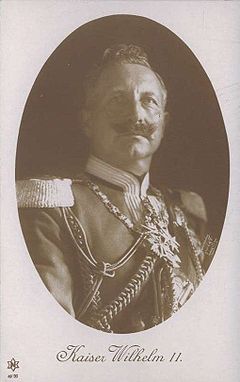History/The Origins of World War One
From WikiEducator
< History
Contents
- 1 Useful Places to go to when constructing this book
- 2 Questions
- 2.1 Colonialism -
- 2.2 Nationalism -
- 2.3 Ethnicity -
- 2.4 Values -
- 2.5 Heritage -
- 2.6 Pan-Slavic Movement -
- 2.7 Imperialism -
- 2.8 Revanchism -
- 2.9 Arms Race -
- 2.10 Contents of Focussing Questions
- 2.11 Answers to the Focussing Questions
- 2.11.1 1. How and why did Bismark establish a network of alliances within the European States System?
- 2.11.2 2. How did the new expanding, dynamic Germany of the late 19th Century affect world politics?
- 2.11.3 3. Why did Britain end her policy of "splendid isolation"?
- 2.11.4 4. What were the important consequences of the First Moroccan Crisis?
- 2.11.5 5. Why did the Balkan "powder keg" nearly explode into war in 1908?
- 2.11.6 6. What was the extent of the arms race and how did it cause international tension prior to World War One?
- 2.11.7 7. How and why did Germany provoke the Second Moroccan Crisis?
- 2.11.8 8. How does Serbia emerge from the Balkan Wars of 1912-13 as the largest and most powerful of dthe Balkan nations?
- 2.11.9 9. How far did European society accept war as natural and inevitable?
- 2.11.10 10. How did the European powers plan for the likelihood of war?
- 2.11.11 11. How did the assassination of the heir to the Austro-Hungarian throne trigger another Balkan Crisis that escalated to World War One?
- 2.11.12 12. What role did Germany play in the final crisis that escalated to World War One?
- 2.11.13 13. What caused World War One and who was to blame?
- 2.11.14
Useful Places to go to when constructing this book
http://commons.wikimedia.org/wiki/Main_Page
http://wikieducator.org/Quickstart_guide/pedagogical_templates
Create Definitions for the following terms:
* Colonialism * Nationalism * Ethnicity * Values * Heritage * Pan-Slavic Movement * Imperialism * Revanchism * Arms Race |
Colonialism -
Nationalism -
Ethnicity -
Values -
Heritage -
Pan-Slavic Movement -
Imperialism -
Revanchism -
Arms Race -
Contents of Focussing Questions
- 1. How and why did Bismark establish a network of alliances within the European States System?
- 2. How did the new expanding, dynamic Germany of the late 19th century affect world politics?
- 3. Why did Britain end her policy of "splendid isolation"?
- 4. What were the important consequences of the First Moroccan Crisis?
- 5. Why did the Balkan "powder keg" nearly explode into war in 1908?
- 6. What was the extent of the arms race and how did it cause international tension prior to World War One?
- 7. How and why did Germany provoke the Second Moroccan Crisis?
- 8. How does Serbia emerge from the Balkan Wars of 1912-13 as the largest and most powerful of dthe Balkan nations?
- 9. How far did European society accept war as natural and inevitable?
- 10. How did the European powers plan for the likelihood of war?
- 11. How did the assassination of the heir to the Austro-Hungarian throne trigger another Balkan Crisis that escalated to World War One?
- 12. What role did Germany play in the final crisis that escalated to World War One?
- 13. What caused World War One and who was to blame?
Answers to the Focussing Questions
1. How and why did Bismark establish a network of alliances within the European States System?
dhfas;lfhas;fhsdhfas;lfhas;fhas;fhas;fhas;hfas;hfas;fh
2. How did the new expanding, dynamic Germany of the late 19th Century affect world politics?
sfha;shfaklfhasfhas;dfha;hgaKHFAS;GHAGHA;HGADSGHA;GADSHGA;HASD;GHA
3. Why did Britain end her policy of "splendid isolation"?
dalh;fgka;gh;ga;dgha;gdh
4. What were the important consequences of the First Moroccan Crisis?
dfhsfa;f
5. Why did the Balkan "powder keg" nearly explode into war in 1908?
sdfhsdf;dhf
6. What was the extent of the arms race and how did it cause international tension prior to World War One?
sklfh;sdfh;a
7. How and why did Germany provoke the Second Moroccan Crisis?
sklfhs;fh
8. How does Serbia emerge from the Balkan Wars of 1912-13 as the largest and most powerful of dthe Balkan nations?
- klfj;asf
9. How far did European society accept war as natural and inevitable?
asdkfhdfds;
10. How did the European powers plan for the likelihood of war?
khf;af;adfh;
11. How did the assassination of the heir to the Austro-Hungarian throne trigger another Balkan Crisis that escalated to World War One?
khdf;sf;dfha;dfhas;fh
12. What role did Germany play in the final crisis that escalated to World War One?
ah;dfh;sdf;adhf
